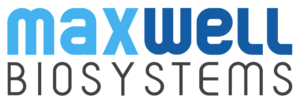AxonTracking Assay Competition
Track your Axon to WIN! The Deadline for entries has been extended to Wednesday 12th October. Do you have a cool image of a tracked neuron using our AxonTracking Assay? Share your image and you could win a $2000 Travel Grant to SfN 2022 in San Diego this November! How to Participate: Send an email to info@mxwbio.com with the subject: AxonTracking Assay Competition Attach the image or link and share a short description of the experiment (max. 100 words) Good…
 English
English


